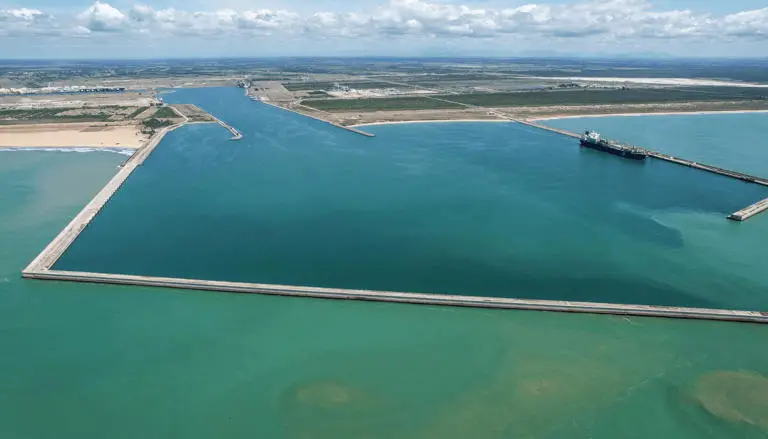In order to assess the possible development of a low carbon steel mega hub in Brazil for the decarbonization of the steel sector, Vale recently inked a Memorandum of Understanding with the deep sea port complex Port of Acu Operaces.
The hub will be constructed near So Joo da Barra in the state of Rio de Janeiro. It will be outfitted to make hot briquetted iron (HBI) through the direct reduction method.
Also read: Dinson Steel Plant’s Construction Progressing as Planned for December Deadline
Initially, pellets will be sent to the low carbon steel mega hub by Vale. So as to supply an HBI plant, the two parties could additionally build an iron ore briquette plant on the site.
The direct reduction plant will employ natural gas available at the port. It would be built and operated by both companies in accordance with the agreement.
Later, it is anticipated that this plant will utilize green hydrogen to generate HBI with almost no carbon emissions.
The low carbon steel mega hub’s expected annual output
By 2028, the complex is scheduled to be operational at the port. According to Prumo Logistica, it is anticipated to have an annual HBI output capacity of approximately 2.5 million metric tons. Prumo Logistica is the company that runs Port do Acu.
As it eliminates the need for coal use during the production of steel, HBI is regarded as a crucial intermediate steel product. This helps minimize emissions.
Marcello Spinelli, vice president of Vale Iron Ore Solutions, stated that they believe the country has a lot of potential to be a center for the production of low-carbon steel. According to him, they have the ability to create green hydrogen. They also have enormous natural gas reserves and high-quality iron ore.
It is said that Vale is looking to partner with other entities that can add value to this process. They aim to do this as a Brazilian company. In Brazil, they want to promote ‘neo-industrialization, a green-based industrialization.
Mining Technology, a brand owned by GlobalData, initially created and published Vale, and Brazil’s Port of Açu teamed up for low-carbon steel manufacturing.

Leave a Reply